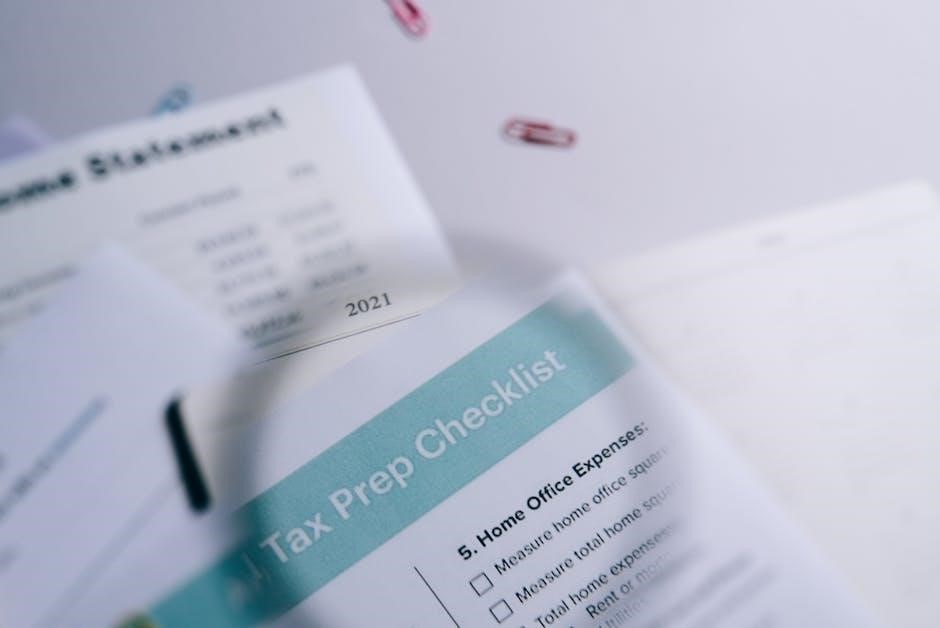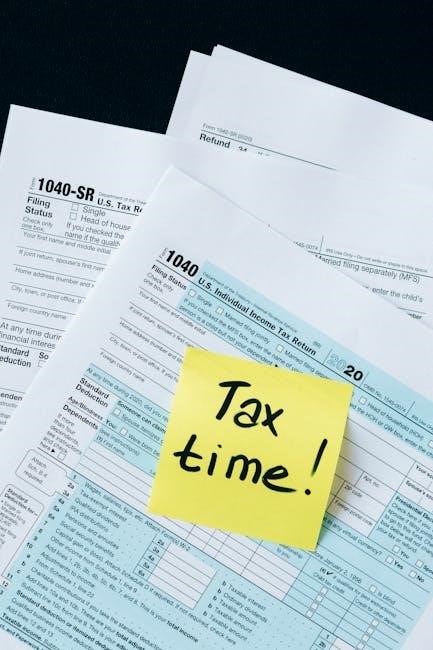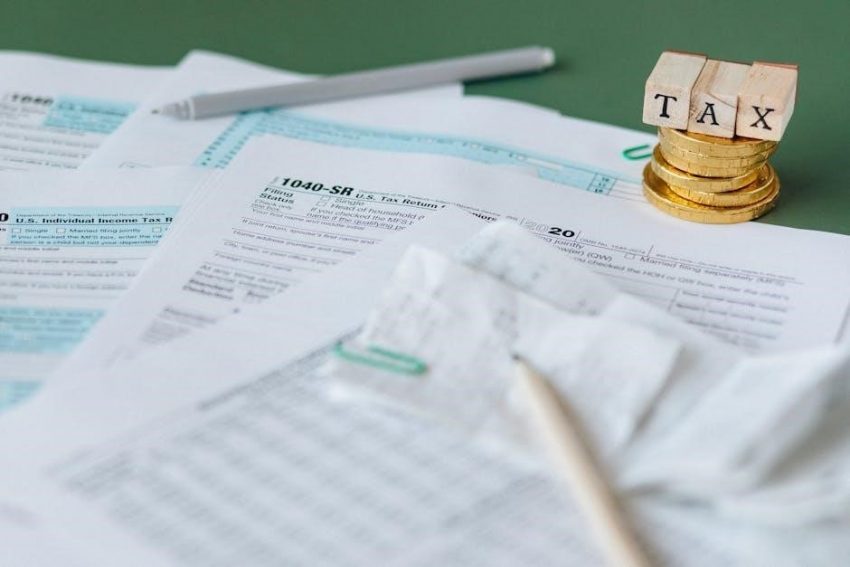Overview of New Jersey Estate Tax
The New Jersey Estate Tax applies to transfers of a deceased person’s assets, impacting beneficiaries and the state. Accurate reporting is essential for tax compliance and ensuring fair distribution. Executors must understand their role in this process to avoid legal issues. It’s crucial for estate planning and state revenue.
1.1. Understanding the Basics of New Jersey Estate Tax
The New Jersey Estate Tax is a state-specific tax applied to the transfer of a deceased individual’s assets. It is separate from the federal estate tax and is based on the value of the estate at the time of death. The tax applies to estates exceeding a certain threshold, and the executor is responsible for filing the return. Key components include accurate valuation of assets, proper documentation, and adherence to filing deadlines. Errors in reporting or valuation can lead to penalties, making it crucial to ensure compliance.
1.2. Key Differences Between Inheritance Tax and Estate Tax
New Jersey imposes both an estate tax and an inheritance tax, each with distinct characteristics. The estate tax is levied on the transfer of the deceased person’s assets, based on the estate’s total value exceeding a threshold. In contrast, the inheritance tax is paid by the beneficiary based on their relationship to the decedent, with closer relatives often benefiting from lower or exempt rates. Understanding these differences is crucial for accurate tax compliance and distribution of assets.

Who Needs to File a New Jersey Estate Tax Return?
Executors or administrators must file if the estate exceeds $25 million in 2025. Legal representatives handle this obligation, ensuring compliance with state tax laws.
2.1. Determining Whether the Estate Meets the Filing Threshold
To determine if an estate meets the filing threshold, executors must calculate the total value of the decedent’s assets, including real estate, investments, and personal property. In 2025, New Jersey requires filing an estate tax return if the estate exceeds $25 million. Executors must accurately assess the gross estate value, considering debts and liabilities, to decide if filing is necessary. Proper valuation ensures compliance with state tax regulations and avoids penalties.
2.2. Identifying the Responsible Party for Filing the Return
The executor of the estate is typically responsible for filing the New Jersey Estate Tax Return. This individual, named in the will or appointed by the court, must ensure compliance with tax laws. Beneficiaries may also seek legal assistance if the executor fails to act. Proper identification of the responsible party ensures timely filing and avoids penalties. Executors must gather necessary documents and accurately report estate details to fulfill their legal obligations effectively.

Gathering Necessary Documents for the Estate Tax Return
Essential documents include the will, death certificate, asset valuations, and tax forms like NJ-1040NR. Accurate records ensure compliance and simplify the filing process for executors.
3.1. Essential Documents Required for Filing
Key documents include the will, death certificate, asset inventories, and tax forms like NJ-1040NR. Beneficiary details, asset valuations, and funeral expense receipts are also necessary. Ensure all financial records, including bank statements and property appraisals, are organized. Legal documents such as trust agreements and powers of attorney should be included. Accurate and complete documentation ensures compliance with state tax laws and streamlines the filing process for executors and beneficiaries alike.
3.2. Importance of Accurate Valuation of Assets
Accurate valuation of assets is critical for determining the taxable estate and ensuring compliance with New Jersey estate tax laws. Inaccuracies can lead to disputes, audits, or penalties. Executors must obtain appraisals for complex assets like real estate or businesses. Proper documentation of asset values ensures fair distribution and correct tax calculations. Professional appraisals are often necessary to confirm values, especially for high-value or unique items, to avoid legal complications and ensure the estate is settled efficiently.

Calculating the New Jersey Estate Tax Liability
Calculate the taxable estate by summing assets, applying deductions, and considering exemptions. Accurate valuation and proper documentation ensure correct tax liability determination and compliance with state regulations.
4.1. Determining the Taxable Estate
The taxable estate includes all assets owned by the decedent at the time of death, such as real estate, securities, and personal property, minus debts and liabilities. Funeral expenses and administrative costs are also deductible. Accurate valuation of each asset is critical to ensure proper calculation. Exemptions and deductions must be applied correctly to avoid overestimation of the taxable estate. Proper documentation and appraisal of assets are essential for compliance with New Jersey estate tax regulations.
4;2. Applying Exemptions and Deductions
Exemptions and deductions reduce the taxable estate, minimizing liability. Charitable donations, mortgages, and administrative expenses are deductible. Funeral costs and medical bills incurred before death are also subtractable. New Jersey allows exemptions for property passing to spouses or charities. Proper documentation is required to claim these deductions. Accurate application ensures compliance and minimizes the taxable estate, avoiding unnecessary liability. Consulting tax professionals can help maximize allowable deductions and exemptions, ensuring the estate is taxed fairly and efficiently under state regulations.
Filing the New Jersey Estate Tax Return
Filing the return involves submitting Form NJ-1041 by the deadline, typically nine months after the decedent’s death. Extensions may be granted for complex estates. Ensure all documents are accurate and comply with state tax authority requirements to avoid delays or penalties.
5.1. Filing Deadlines and Extensions
The New Jersey Estate Tax Return (Form NJ-1041) must be filed within nine months of the decedent’s death. Extensions can be requested using Form NJ-140, but penalties may apply for late filing. Executors should ensure timely submission to avoid interest on unpaid taxes. If additional time is needed, the extension request must be filed before the original deadline. Proper documentation and payment arrangements are essential to comply with state tax authority requirements and avoid unnecessary delays or penalties.
5.2. Submitting the Return and Making Payments
The completed New Jersey Estate Tax Return (Form NJ-1041) must be submitted to the New Jersey Division of Taxation. Payments can be made by check or electronically through the state’s online system. Ensure all payments are accompanied by the appropriate voucher to avoid processing delays. Late payments may incur penalties and interest, so timely submission is crucial. Proper documentation, such as receipts and payment confirmations, should be retained for records. Executors are responsible for ensuring accurate and complete submissions to avoid compliance issues.

Reporting Income and Deductions
Report all income earned by the estate and claim allowable deductions on the New Jersey Estate Tax Return (Form NJ-1041). Accurate reporting ensures compliance with tax requirements.
6.1. Income That Must Be Reported
The estate must report all income earned from assets, such as rental income, interest, dividends, and capital gains. Income earned after the decedent’s death but before distribution to beneficiaries is taxable. Schedule E is used to report rental income and related deductions. Accurate reporting ensures compliance with tax laws and avoids penalties. Proper documentation, including receipts and ledgers, is essential for verifying income sources and amounts. Failing to report income may result in additional taxes or delays in processing the return.
6.2. Deductions and Credits Available
Estates can claim deductions for funeral expenses, administration costs, debts, and taxes paid. Charitable donations and certain trust distributions may also qualify. Credits are available for taxes paid on property transferred during the decedent’s lifetime. Proper documentation is required to support these claims. Itemizing deductions on Schedule A ensures accuracy. New Jersey-specific forms, such as L-8 and L-9s, may apply. These deductions and credits can significantly reduce the taxable estate, minimizing liability and ensuring compliance with state tax regulations.

Beneficiary Information and Tax Implications
Beneficiaries must be detailed with their relationship to the decedent. Understanding their tax obligations ensures proper distribution and compliance with state regulations, minimizing estate tax liability effectively.
7.1. Details Required About Beneficiaries
Accurate beneficiary information, including names, relationships to the decedent, and contact details, must be provided. The date of death value of assets and debts owned by the decedent is essential. Executors must ensure detailed reporting to comply with tax regulations and avoid legal complications. Beneficiaries should actively seek information about the estate to understand their rights and obligations, ensuring fair distribution and tax compliance.
7.2. Tax Implications for Beneficiaries
Beneficiaries may face tax implications depending on their relationship to the decedent and the assets received. Executors must ensure accurate reporting of inherited assets to avoid legal issues. Beneficiaries should stay informed about estate details to understand their rights and obligations. Tax compliance is crucial for fair distribution and to prevent disputes. Consulting legal or tax professionals can help beneficiaries navigate complexities and ensure they meet all requirements. Proper documentation is key to avoiding future complications.

The Audit and Payment Process
The estate tax return may be audited to ensure accuracy. Payments must be made within specified deadlines, with extensions available under certain conditions. Proper documentation is essential to avoid disputes and ensure compliance with state regulations.
8.1. Understanding the Audit Process
The New Jersey estate tax audit process involves a detailed review of the estate tax return to ensure accuracy and compliance. The state may examine asset valuations, deductions, and beneficiary information. Executors must provide documentation, such as appraisals and financial records, to support the return. If discrepancies are found, additional taxes or penalties may apply. Understanding the audit process helps prepare for potential scrutiny and ensures compliance with state tax regulations.
8.2. Handling Additional Payments or Refunds
If the audit reveals additional taxes owed, the estate must pay promptly to avoid penalties. Payments can be made by check or online through state portals. Refunds, if due, are issued after verifying discrepancies. Executors should maintain detailed records and follow state guidelines for processing. Missing deadlines may result in fines, while accurate filing prevents future issues. Understanding payment and refund procedures ensures compliance and avoids complications.

Tax Planning Strategies
Effective tax planning involves minimizing estate tax liability through strategic gifting, trusts, and asset allocation. Consulting professionals ensures compliance and maximizes benefits for beneficiaries.
9.1. Minimizing Estate Tax Liability
Minimizing estate tax liability involves strategic planning, such as establishing trusts, gifting assets during one’s lifetime, and ensuring accurate valuation of estate assets. Utilizing deductions for funeral expenses, debts, and administrative costs can reduce the taxable estate. Consulting with tax professionals and attorneys is crucial to navigate state-specific rules and optimize tax savings. Regularly reviewing and updating estate plans ensures alignment with current laws and personal circumstances, helping to minimize potential tax burdens effectively.
9.2. Utilizing Trusts and Other Estate Planning Tools
Trusts and other estate planning tools are effective strategies to manage and distribute assets while minimizing tax implications. Irrevocable trusts can shield assets from estate taxes, while revocable trusts offer flexibility during one’s lifetime. Wills, powers of attorney, and beneficiary designations are also critical components. These tools ensure assets align with the decedent’s wishes and reduce tax liability. Properly structuring these instruments with professional guidance is essential for optimal estate tax planning and compliance with state regulations.
Common Mistakes to Avoid
Common mistakes include missing filing deadlines, improper reporting of assets, and inaccurate valuations. Ensuring timely submissions and accurate documentation is crucial to avoid penalties and delays.
10.1. Errors in Valuation and Reporting
Errors in asset valuation and reporting are common mistakes that can lead to penalties and delays. Incorrect appraisals may result in undervalued or overvalued assets, affecting tax liability. Misreporting income or deductions can trigger audits. Executors must ensure accurate documentation and proper classification of assets. Double-checking valuations and reports is essential to avoid discrepancies. Consulting professionals can help prevent these errors and ensure compliance with state tax regulations. Attention to detail is crucial for a smooth filing process.
10.2. Missing Deadlines and Documentation
Missing deadlines and incomplete documentation are critical errors that can delay processing and result in penalties. Executors must ensure all required forms, like NJ-1040NR, are submitted on time. Overlooking essential attachments, such as appraisals or inventories, can lead to audits or additional payments. Extensions may be requested, but timely filing is crucial. Proper record-keeping and adherence to submission dates are vital to avoid complications and ensure a seamless estate tax process. Professional guidance can help prevent these costly oversights.

Seeking Professional Assistance
Consulting a tax professional, attorney, or financial advisor is crucial for navigating complex estate tax requirements. Their expertise ensures accurate filings, avoiding errors and potential penalties.
11.1. When to Consult a Tax Professional
Consult a tax professional when dealing with complex estate tax filings, high-value assets, or unique circumstances like trusts or multiple beneficiaries. Their expertise ensures compliance with state regulations, accurate valuation of assets, and maximization of deductions. Professionals can also navigate intricate legal requirements, minimizing errors and potential penalties. Additionally, they assist with deadline adherence and provide guidance on minimizing tax liabilities, making the process smoother for executors and beneficiaries alike. Their involvement is crucial for ensuring everything is handled efficiently and correctly.
11.2. Role of Attorneys and Financial Advisors
Attorneys and financial advisors play a crucial role in navigating the complexities of estate tax filings. They provide legal guidance on asset distribution, ensure compliance with state regulations, and help minimize tax liabilities. Financial advisors assist in valuing assets, optimizing deductions, and strategic planning. Attorneys also handle disputes, represent executors in audits, and ensure beneficiaries’ rights are protected. Their expertise is invaluable for complex cases, ensuring the estate is managed efficiently and in accordance with legal requirements. This collaboration helps prevent oversights and ensures a smooth process for all parties involved. Their input is essential for achieving favorable outcomes.
Filing a New Jersey estate tax return requires careful preparation and understanding of tax obligations. Executors must ensure accuracy and compliance to avoid legal complications. Professional guidance is often essential to navigate the process effectively. A well-organized approach and adherence to deadlines are key to a successful filing experience and ensuring the estate’s assets are distributed fairly. Proper planning and execution are vital for a smooth conclusion. Always prioritize a final checklist to confirm all requirements are met before submission.
12.1. Final Checklist for Filing Success
Ensure all necessary documents, including asset valuations, tax forms, and beneficiary details, are accurately completed and submitted. Verify compliance with state-specific requirements. Double-check calculations for tax liability and deductions. Confirm timely payment of taxes due. Review the return for errors or omissions. Submit the return by the designated deadline. Maintain copies of all documents for records. Consider consulting a tax professional for final verification. Ensure all beneficiary information is up-to-date and correctly reported. Confirm receipt of the filed return and payments. Address any additional requests from tax authorities promptly. This checklist helps ensure a smooth and successful filing process.
12.2. Next Steps After Filing the Return
After submitting the estate tax return, ensure all payments are processed and receipts are retained. Monitor for any correspondence from tax authorities regarding the filing. Address any additional requests or audits promptly. Distribute assets to beneficiaries as outlined in the estate plan. Maintain clear communication with beneficiaries regarding the status of the estate. Consider consulting with a tax professional or attorney for post-filing guidance. Keep all records organized for potential future reference or audits. Ensure compliance with any ongoing legal or financial obligations related to the estate.

Additional Resources
Access official New Jersey estate tax forms and guidelines from state tax authorities. Utilize tax software like Drake or CCH ProSystem fx for accurate filing. Consult legal handbooks or seek professional assistance for complex cases. Visit the NJ Division of Taxation website for updates and resources.
13.1. Official State Guidelines and Forms
The New Jersey Division of Taxation provides official guidelines and forms for estate tax returns. Visit their website for Form NJ-1041, NJ-Estate, and instructions. These resources detail requirements for filing, including estate valuation, tax calculations, and reporting. Ensure compliance by reviewing state-specific rules and deadlines. Additional resources include worksheets for complex calculations and extensions. Consulting official guidelines helps avoid errors and ensures accurate submission. These resources are essential for executors and professionals handling estate tax matters in New Jersey.
13.2. Recommended Reading and Tools
For comprehensive guidance, utilize resources like the IRS Publication 559 and CCH ProSystem fx Tax. Tools such as Drake Software offer detailed estate tax preparation support. Legal handbooks and articles from tax professionals provide insights into compliance and planning. Additionally, websites like Nolo and Tax Foundation offer practical guides and updates on state-specific regulations. These resources help executors and professionals navigate complex estate tax requirements efficiently and accurately.

